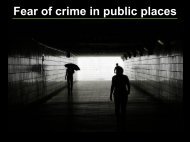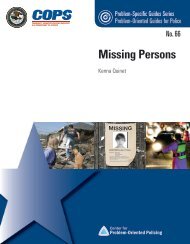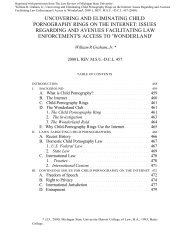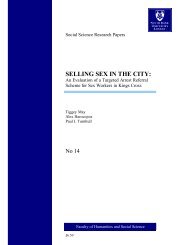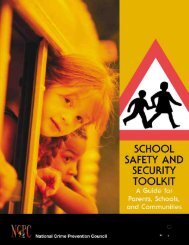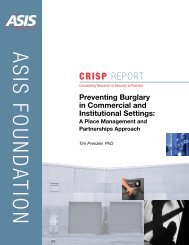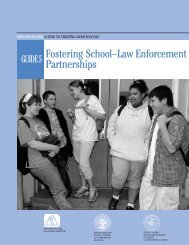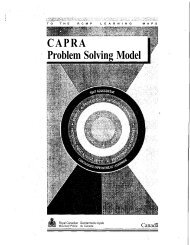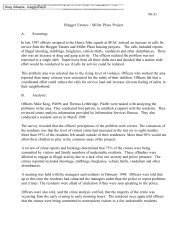Child Pornography: - Center for Problem-Oriented Policing
Child Pornography: - Center for Problem-Oriented Policing
Child Pornography: - Center for Problem-Oriented Policing
You also want an ePaper? Increase the reach of your titles
YUMPU automatically turns print PDFs into web optimized ePapers that Google loves.
First World Congress Against Commercial<br />
Sexual Exploitation of <strong>Child</strong>ren<br />
Programs and initiatives under the auspices of international organizations help raise the level<br />
of awareness regarding child sexual exploitation worldwide and promote action on both national<br />
and international levels. In 1996 the First World Congress Against Commercial Sexual<br />
Exploitation of <strong>Child</strong>ren was convened in Stockholm, Sweden, as a <strong>for</strong>um to develop strategies<br />
<strong>for</strong> an international response. The Congress was organized by End <strong>Child</strong> Prostitution,<br />
<strong>Child</strong> <strong>Pornography</strong> and Trafficking in <strong>Child</strong>ren <strong>for</strong> Sexual Purposes International (ECPAT<br />
International) and hosted by the government of Sweden in collaboration with the United<br />
Nations <strong>Child</strong>ren's Fund (UNICEF) and the Group <strong>for</strong> the Convention on the Rights of the<br />
<strong>Child</strong>, a nongovernmental organization (NGO).<br />
The World Congress adopted a Declaration and Agenda <strong>for</strong> Action that calls upon states to<br />
• accord high priority to action against the commercial sexual exploitation of children<br />
and allocate adequate resources to the ef<strong>for</strong>t<br />
• promote stronger cooperation between states and all sectors of society and strengthen<br />
the role of families<br />
• criminalize the commercial sexual exploitation of children<br />
• condemn and penalize the offenders while ensuring the child victims are not<br />
penalized<br />
• review and revise laws, policies, programs, and practices<br />
• en<strong>for</strong>ce laws, policies, and programs<br />
• promote adoption, implementation, and dissemination of laws, policies, and programs<br />
against the sexual exploitation of children<br />
• develop and implement comprehensive, gender-sensitive programs to protect and<br />
assist child victims and facilitate their recovery and reintegration into society<br />
• create a climate to ensure parents and others protect children<br />
• mobilize political and other partners, national and international communities including<br />
NGOs and intergovernmental organizations (IGOs) to assist other countries in<br />
elimination of commercial sexual exploitation of children<br />
• enhance popular participation including that of children 407<br />
The Agenda <strong>for</strong> Action highlights existing international commitments, identifies priorities<br />
<strong>for</strong> action, and assists in the implementation of relevant international instruments. It calls <strong>for</strong><br />
action from governments; all sectors of society; and national, regional, and international<br />
organizations against the commercial sexual exploitation of children. As a follow-up to the<br />
First World Congress, the Japanese government, in collaboration with UNICEF, ECPAT, and<br />
the NGO Group <strong>for</strong> the Convention on the Rights of the <strong>Child</strong>, will host the Second World<br />
Congress in Yokohama, Japan, in December 2001.<br />
The combination of these various international ef<strong>for</strong>ts aimed at eradicating the commercial<br />
sexual exploitation of children brings increased attention to the issues, heightens public<br />
awareness, and places greater international pressure on governments to take definitive action.<br />
38 - CHILD PORNOGRAPHY: THE CRIMINAL-JUSTICE-SYSTEM RESPONSE



